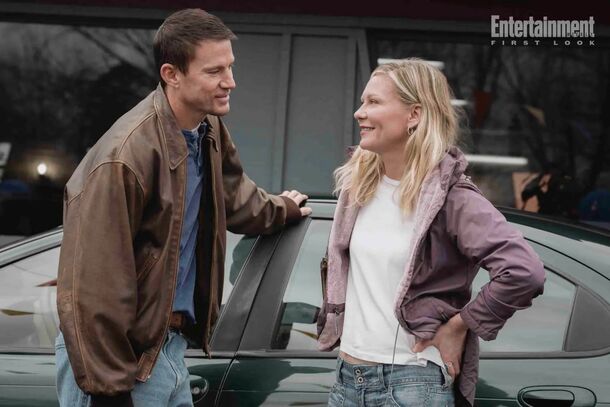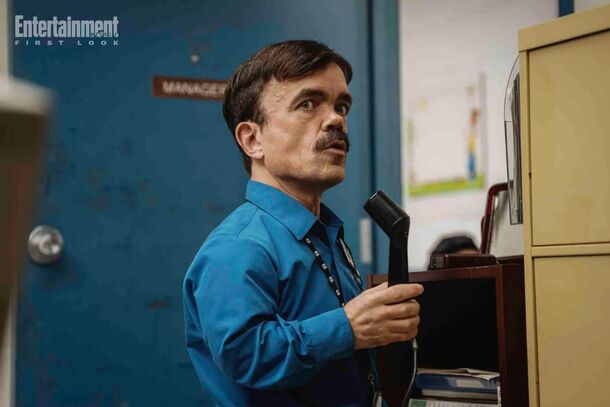'Roofman': A Gritty Yet Heartfelt Tale of Redemption Rooted in Real-Life Stories

Director Derek Cianfrance's authentic approach pushes actors to new limits in true crime drama.
When Channing Tatum signed on to portray the real-life criminal Jeffrey Manchester in the film Roofman, he initially believed it would be a relatively easy departure from the physically demanding roles he's known for. However, that assumption was quickly dispelled. Tatum describes the experience as "absolutely exhausting," emphasizing that although the film isn't an action movie, it demanded a different kind of endurance — what he calls a "spiritual marathon." The role required him to push his physical and emotional limits, especially during sequences that involved breaking through roofs, a signature method of Manchester’s crimes.
Directed by Derek Cianfrance, Roofman is based on a true story set in 2004. Tatum plays Manchester, a spree-robber notorious for drilling through roofs to access properties. The film recreates these daring break-ins, challenging Tatum to discover his own physical boundaries. Cianfrance’s approach was unorthodox; he wanted scenes to feel authentic and raw, often emphasizing the struggle in small moments — like trying to remove a roof shingle or falling through a ceiling—rather than neat, choreographed action. Tatum recalls being told to imagine falling through roofs without safety nets, which added realism but also physical risk.
This method of filmmaking was invigorating for Tatum. He appreciated that every scene was vital and explored different emotional depths, rather than relying on straightforward storytelling. The process involved intense preparation and exploration, with Cianfrance deliberately keeping actors apart until their first scene together to heighten authenticity. For Tatum, working with Kirsten Dunst was nerve-wracking at first but ultimately rewarding; her warmth helped him overcome initial nerves.

The story centers on Manchester’s life over six months in 2004, during which he adopts an alias and lives on the fringes of society. After escaping from jail, he hides in a Toys "R" Us store, exploring his childhood nostalgia and attempting to forge a new life with Leigh Wainscott (Dunst), a divorced mother working at the store. Their relationship develops amidst Manchester’s efforts to leave his past behind, but his criminal history begins catching up with him.
Dunst highlights how much effort Tatum put into this role, noting that no one has seen him like this before. She also mentions that Manchester himself is portrayed as a complex and sympathetic figure — an intelligent man burdened by poor choices but still full of life and potential. Though she didn’t meet Manchester personally, she visited some filming locations connected to his story and appreciated how many real people from his life appeared in the film, adding layers of authenticity.
Tatum had extensive conversations with Manchester via phone calls since he couldn’t meet him face-to-face due to his incarceration. He describes Manchester as “a beautiful and unfortunate soul,” whose honesty and intelligence left an impression on him. Dunst recalls that Manchester’s real-life preacher appears in the film as well, further grounding the story in reality.

Both actors praise Cianfrance’s unique directing style — his emphasis on authenticity and actor freedom created an environment where vulnerability thrived. For example, he kept Dunst and Tatum apart until their first scene together to enhance genuine chemistry and reduce nerves. Tatum admits feeling intimidated working with Dunst but found her warmth helped him relax into his role.
Cianfrance also incorporated playful yet purposeful tactics — like setting traps for actors during rehearsals — to evoke genuine reactions and keep performances spontaneous. Dunst enjoyed this approach; she appreciated how it fostered authentic moments rather than forced performances.
While Dunst enjoyed lighter moments during filming — comparing her experience to singing in a Christmas choir — Tatum relished the physical challenges of portraying Manchester’s adventurous exploits in the toy store at night. His character's antics — riding bikes through aisles or wearing inner tubes as clothing — were inspired by Manchester’s own stories, adding nostalgic flavor to the film.

Despite its playful surface, Roofman carries a poignant undertone about consequences and redemption. Tatum explains they aimed for a balance: fun yet sad — a "sweet but sad" tone that captures both humor and heartbreak. Dunst emphasizes that the film feels genuine without veering into manipulation or cliché; it makes viewers laugh and cry simultaneously.
In sum, Roofman is an intense exploration of one man’s complex journey — a blend of raw authenticity, emotional depth, and nostalgic adventure — all brought vividly to life through dedicated performances and innovative filmmaking techniques.
